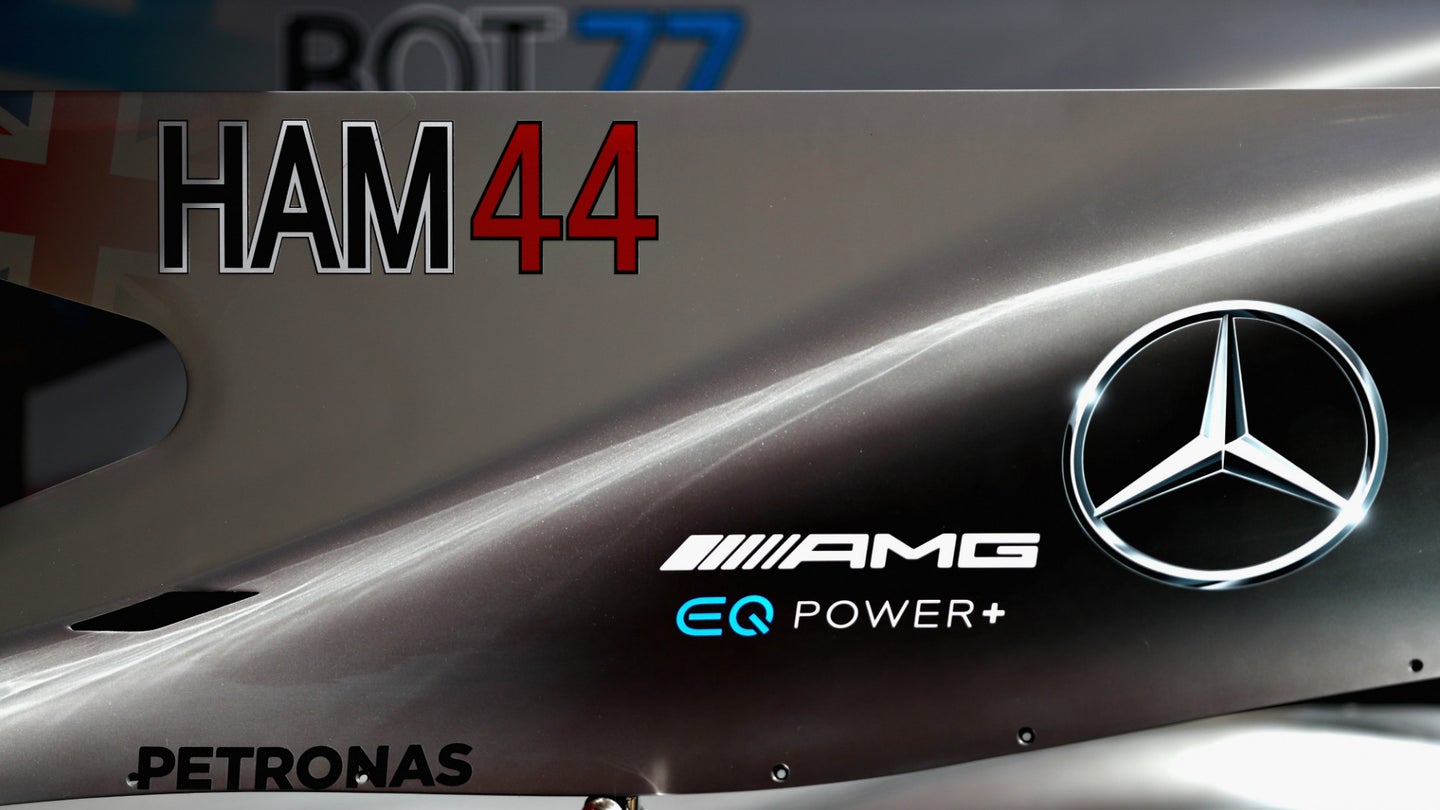Mercedes-AMG’s F1 Engine Has Cracked 50 Percent Thermal Efficiency, Report Says
Over half the potential energy entering the M08 EQ Power+ as fuel (or oil) is captured and used by the engine.

Since joining Formula 1 in 1994 as an engine supplier, Mercedes engines have powered cars that have earned a combined total of 149 Grand Prix wins, split between McLaren, Brawn, and its own factory team. 59 of these wins alone have come since the 2014 season, when Mercedes' 1.6-liter turbo V6 proved the best of the three available engines due to a combination of an ingenious design and a significant horsepower advantage. Even throughout last year, Mercedes engines still led the way—but this year, their advantage is less convincing, with rival Ferrari taking four wins so far this season, and another expected this weekend in Singapore.
As of Wednesday, Mercedes has made steps to guarantee that they will retain an engine advantage. During a dyno test session, their engine was found to have cracked 50 percent thermal efficiency, according to a report by Motorsport.
The importance of thermal efficiency in Formula 1 has become emphasized by the limited fuel load, the ban on refueling, and the fuel flow cap—rules implemented both as a reaction to fiery refueling accidents and to prevent teams from deploying ultra high-power engine maps in times of need, such as overtaking or defense. Large closing speeds between cars have been considered dangerous for decades, with the famous "107 percent rule" being enacted in 1996 to prevent dangerously slow cars from sharing the track with those fighting for championship points.
Thermal efficiency in internal combustion engines is, when oversimplified, how much of the energy that enters the engine is converted into work and not wasted as heat. Many road car engines are approximately 20 percent efficient, according to Green Car Reports, which means that Mercedes's current Formula 1 engine runs at around 150 percent greater efficiency than the engine that powers your commuter car.
We're no experts in the laws of thermodynamics, however, so for those interested in learning more about thermal efficiency, we recommend you check out Engineering Explained's video below. Take it away, Mr. Fenske.

